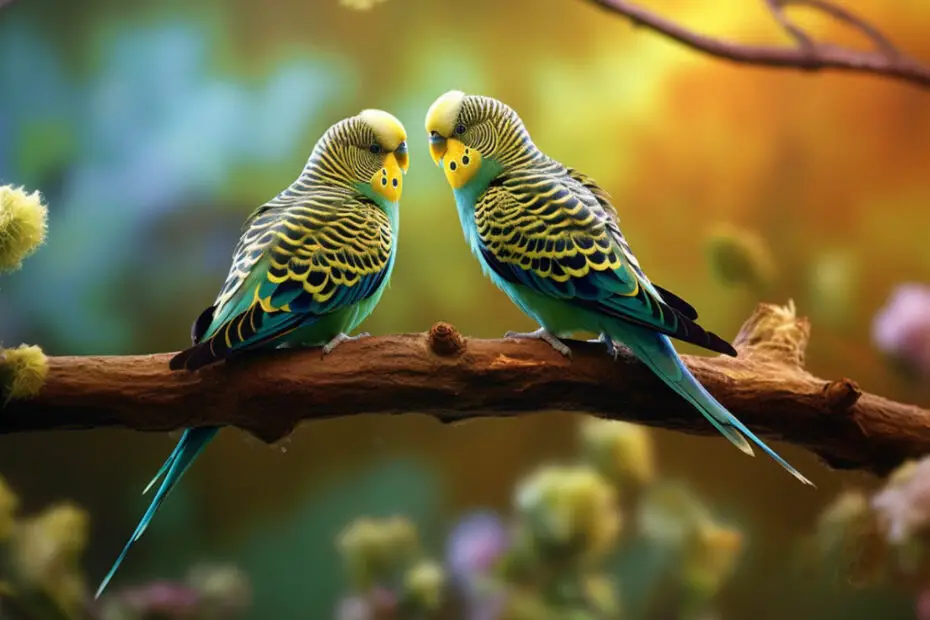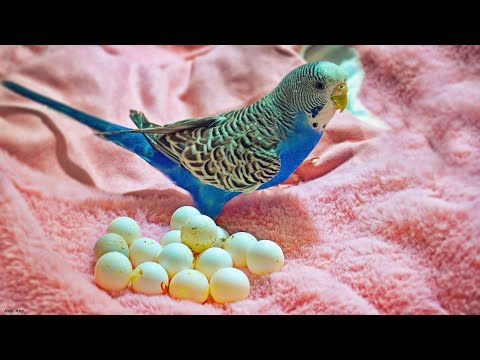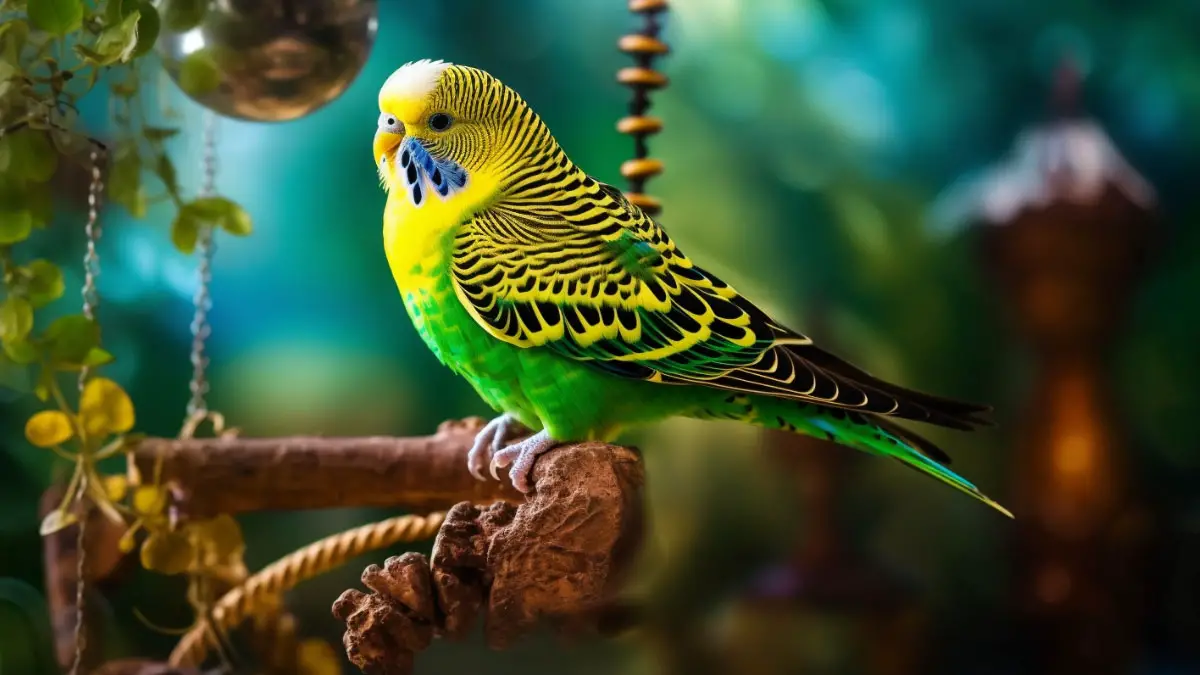Breeding these colorful and charismatic birds can be an enriching experience, but it is not without difficulties. Understanding how to manage breeding conditions and address common issues, such as unhatched or infertile eggs, is critical. This ensures the health and well-being of your budgies and their offspring.
So, when should I remove unhatched budgie eggs, and how? Budgie eggs usually hatch after 18 days. However, the mother bird will wait until the last egg has hatched to stop brooding. Therefore, remove any unhatched eggs after 24-28 days, as by then; the mother bird may have lost interest in them. This practice can ensure the best possible outcome for the hatched chicks.
Continue reading to learn when and how to remove unhatched budgie eggs. We will also discuss breeding budgies safely, how to know the eggs are infertile, and the importance of veterinary care for birds.
When To Remove Unhatched Budgie Eggs And How?
When breeding budgies, understanding egg management is essential. This includes monitoring the eggs closely and knowing when to remove unhatched eggs. While it’s normal for budgies to lay a clutch of around four to six eggs, not all eggs may hatch. Before removing the unhatched eggs, you must wait 8-10 days past the expected hatch date. That is, 26-28 days past the expected hatch date. This is because the incubation period can vary, and you may remove eggs undergoing delayed incubation.
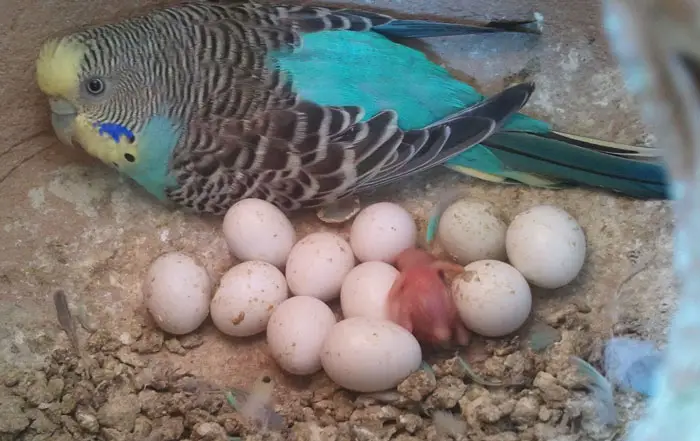
This is how to remove unhatched budgie eggs;
- Wait for the right time: Removing the eggs when the female budgie is out of the nesting box is best. You can do this during feeding or when she is bathing. Some female budgies become disinterested in the eggs after a while, so that is when you can take them out.
- Remove one egg at a time: If there is a clutch of unhatched eggs, removing them one at a time rather than all at once is best. This can help prevent the female budgie from becoming distressed.
- Providing bird breeding accessories: These can substitute for your removed eggs. Examples of these accessories are plastic eggs you can buy in bird shops.
- Remove carefully: Carefully remove the unhatched eggs from the nesting box using your gloved hands. Be gentle to avoid damaging any remaining eggs or chicks.
- Dispose of the eggs: Place the eggs into the container and seal the lid tightly. You can throw the container away with your regular trash or bury the eggs in your garden.
- Clean the nesting box: After removing the eggs, clean and disinfect the nesting box thoroughly. Good nest management practices help to prevent the spread of disease and make the environment more conducive for the adult budgie.
Reasons For Unhatched Eggs
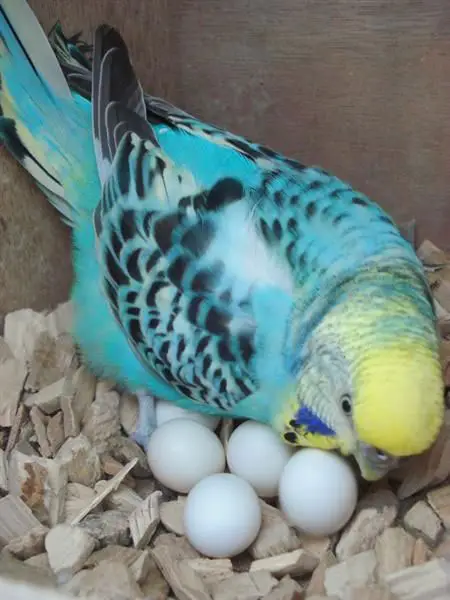
Here are some of the reasons why an egg may not hatch;
- Infertility: The eggs may not be fertile if the male and female budgies are incompatible or mature enough. In some cases, it may be necessary to introduce a new mate if the current pair is not producing fertile eggs.
- Genetic abnormalities: These can be caused by various factors, including inbreeding, improper nutrition, or exposure to toxins. Managing budgie breeding conditions is vital for successfully hatched eggs.
- Physical damage to the egg: Eggs can be damaged during laying or incubation. If the eggshell is cracked or broken, it can prevent the embryo from developing correctly.
- Poor incubation: If the temperature or humidity in the nesting box is not optimal, the eggs may not develop properly. Sometimes, the female may not incubate the eggs properly or abandon the nest. In such a case, you may need to adopt bird egg incubators. The primary function of an incubator is to provide a stable and consistent environment for the eggs to develop.
- Environmental factors: Budgies are sensitive to environmental changes, which can affect their ability to lay and hatch eggs. Factors such as stress, noise, and exposure to toxins can all impact egg production and hatching.
How To Know Unhatched Eggs Are Fertile Or Infertile?
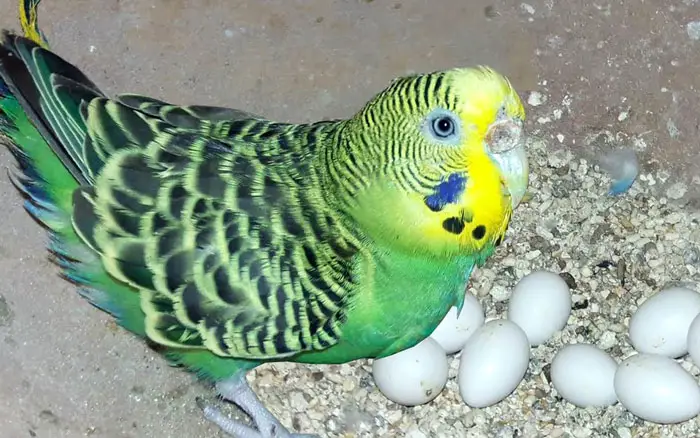
Here are some of the most common methods for how I can tell if my budgie’s eggs are infertile.
Candling
Egg candling is shining a bright light through the egg to examine its contents. This method can be used to determine whether the egg is fertile, infertile, or if it contains a dead embryo.
To candle an egg, hold it up to a bright light source, such as a flashlight, and look for signs of development. Fertile eggs will have visible veins and a developing embryo, while infertile eggs will be clear and show no signs of development.
If the whole egg is dark, it means it had started to develop, but now, it has rotted. Here is a video to help you out more:
Floating
To do this, place the egg in a bowl of water. It is likely fertile if the egg sinks to the bottom and lays on its side.
If the egg floats to the top, it is probably infertile. However, it’s important to note that this method is not always reliable, and it’s best to use it with other methods.
Time
Budgie eggs typically take around 18 to 21 days to hatch. So, if an egg has been in the nesting box for longer than 26 days without showing any signs of development, it is probably infertile. In such a case, removing infertile budgie eggs is the only thing to do.
Single Female Budgie
If a single female budgie is kept in a cage without a male, her eggs will be infertile and not hatch. Female budgies can lay eggs without a mate, but no chicks will develop.
What Happens If You Do Not Remove The Unhatched Eggs?
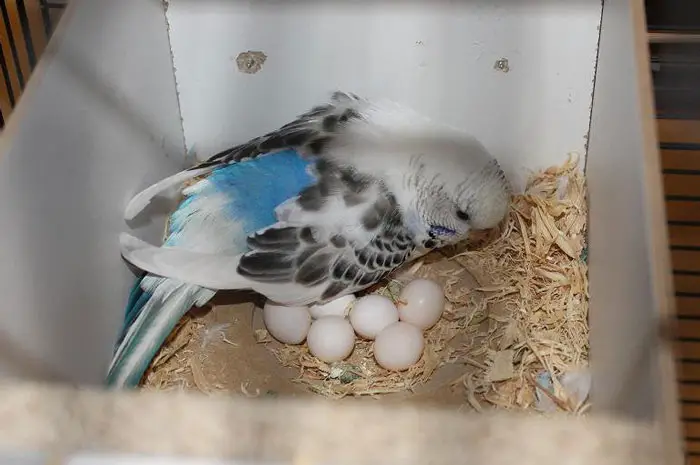
If you do not remove unhatched eggs from a budgie nesting box, it can lead to several problems. Here are some of the potential consequences:
1. Spread Of Disease
The unhatched eggs can become a breeding ground for bacteria and fungi that can cause infections and other health problems in the adult bird. This may happen when the eggs accidentally spill.
2. Attracting Predators
The smell of unhatched eggs can attract predators such as rats, mice, and insects to the nesting box. These animals can harm adult birds and any remaining chicks.
3. Female Budgie Becoming Distressed
Unhatched eggs in the nesting box can also cause psychological stress to adult birds. They may feel a sense of failure or frustration if the eggs do not hatch. This can lead to decreased breeding performance and a higher risk of health problems.
4. Foetal Cannibalism
If unhatched eggs are left in the nesting box, the adult birds may develop a taste for the yolk inside the egg. This can lead to fetal cannibalism, where the adult birds eat the contents of the unhatched eggs. This bird behavior can be harmful to the remaining eggs and chicks, as it can lead to aggression and neglect.
How To Practise Good Budgie Breeding?
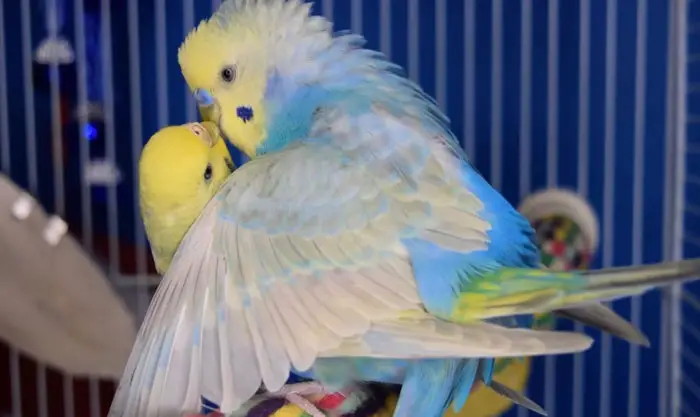
Here are a few suggestions for caring for your budgie during brooding.
Pet Care
The first step in helping your budgie during brooding is to provide her with a safe and comfortable environment. Ensure the budgie has the following:
- A clean and spacious cage with plenty of perches, toys, and food and water dishes
- Place the cage in a quiet area away from loud noises and direct sunlight
- Keep the room temperature between 35.5°C and 38.5°C.
- Ensure you perform regular bird grooming. This may entail regularly cleaning and disinfecting the nesting area. Thus, it helps prevent bacteria buildup and keeps your budgie healthy.
- Cover the cage with a cloth or sheet to provide privacy and reduce stress.
- Bird nutrition plays a vital role in the mother and chicks’ health. Therefore, provide your budgie with fresh water and a balanced diet of pellets, fruits, vegetables, and occasional treats. You can also provide calcium supplements, such as cuttlebones or mineral blocks, to support egg development and prevent budgie breeding problems such as egg binding.
Bird Health Problems
Understanding bird anatomy can help you identify potential health problems, such as egg binding during brooding. This occurs when an egg gets stuck in the reproductive tract and causes cloacal prolapse. You will notice the cloaca protruding from the body.
Also, watch for signs of illness, such as lethargy or unusual behavior. These conditions can be life-threatening, so regular veterinary care for birds is critical.
Bird Behaviour
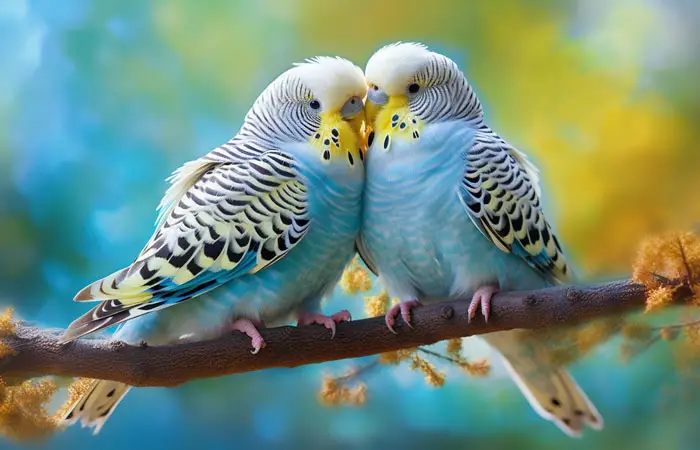
Budgies can exhibit various behaviors during brooding, such as becoming territorial, aggressive, or protective. Respecting your bird’s space and avoiding disturbing the bird is crucial.
Try to maintain a consistent routine and avoid making significant changes to her environment or handling her excessively. If you need to clean the cage or provide food and water, do it quickly and quietly.
FAQs
Here are other questions related to this topic.
Yes, it is safe. However, you should do it carefully to avoid breaking the infertile eggs or injuring the hatched chicks.
If your budgies aren’t breeding correctly, it could be due to improper diet, stress, or a lack of privacy. You should ensure the budgie is healthy, has access to food and water, and has a mate unrelated to it. You can also consult a veterinarian or an experienced breeder for more advice.
Yes, budgies require a diet rich in calcium and protein when laying eggs. This can include foods such as eggs, cheese, and leafy greens.
Conclusion
Removing unhatched budgie eggs should be done carefully and with consideration for the health of the female budgie. Before removing the eggs, ensure more than 26 days have passed to rule out that incubation could be delayed. You can also test whether eggs are fertile by egg candling or the floating test.
After you are sure the eggs are infertile, remove and dispose of them. Leaving the eggs in the nest may lead to consequences such as cannibalism, the presence of pests, and budgie distress. Ensure you take care of the budgie during the brooding by following the steps discussed in this article. All the best to your feathered friend!
